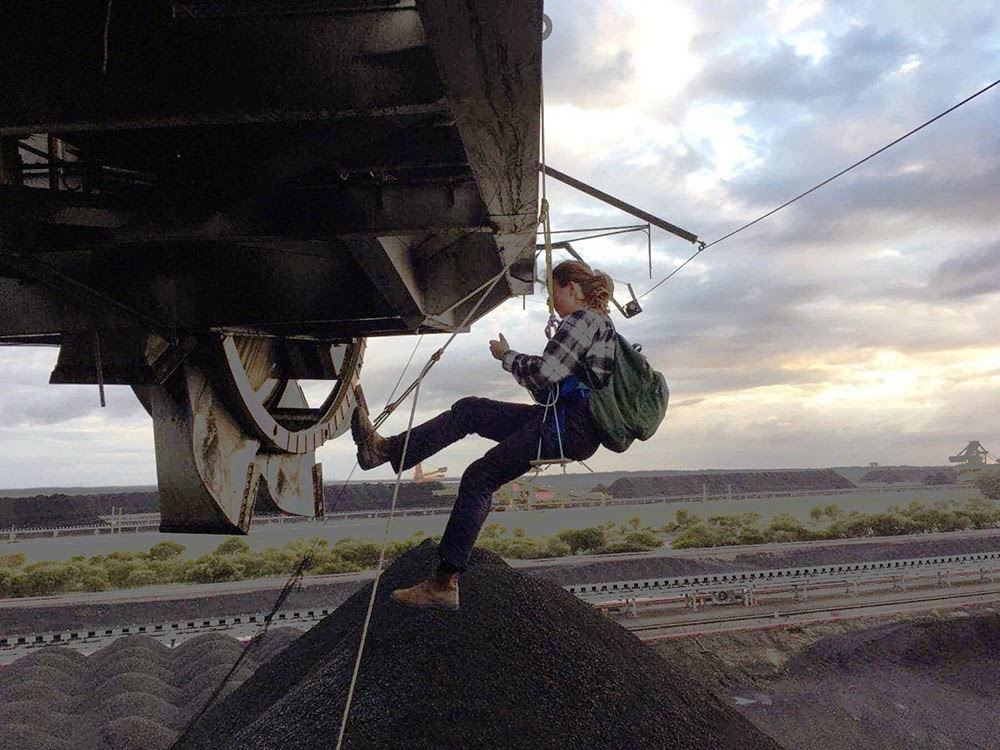
Blockade Australia’s sustained disruption of a major coal port caused a political storm.
The last year has been a bleak one for climate activists. We’ve seen extreme weather events proliferate, political inaction dressed up as progress (again), and a return to rising global emissions after the economic slowdown brought on by the pandemic.
But one aspect of 2021 that we should take solace in is climate activism itself. There has been an amazing array of new groups and campaigns popping up, many using bold tactics and fresh approaches to push nonviolent direct action (NVDA) to new levels.
The world of climate activism has never been so broad and exciting, but also never so confusing. What are the aims of these new climate groups? What is their relationship (if any) with XR? What can we expect from them in 2022?
We spoke to four of them - Blockade Australia, Insulate Britain, Last Generation, and Shell Must Fall - to build some bridges and get some clarity as we ready ourselves for another year of global rebellion…
Blockade Australia
Established Early 2021 | Australia
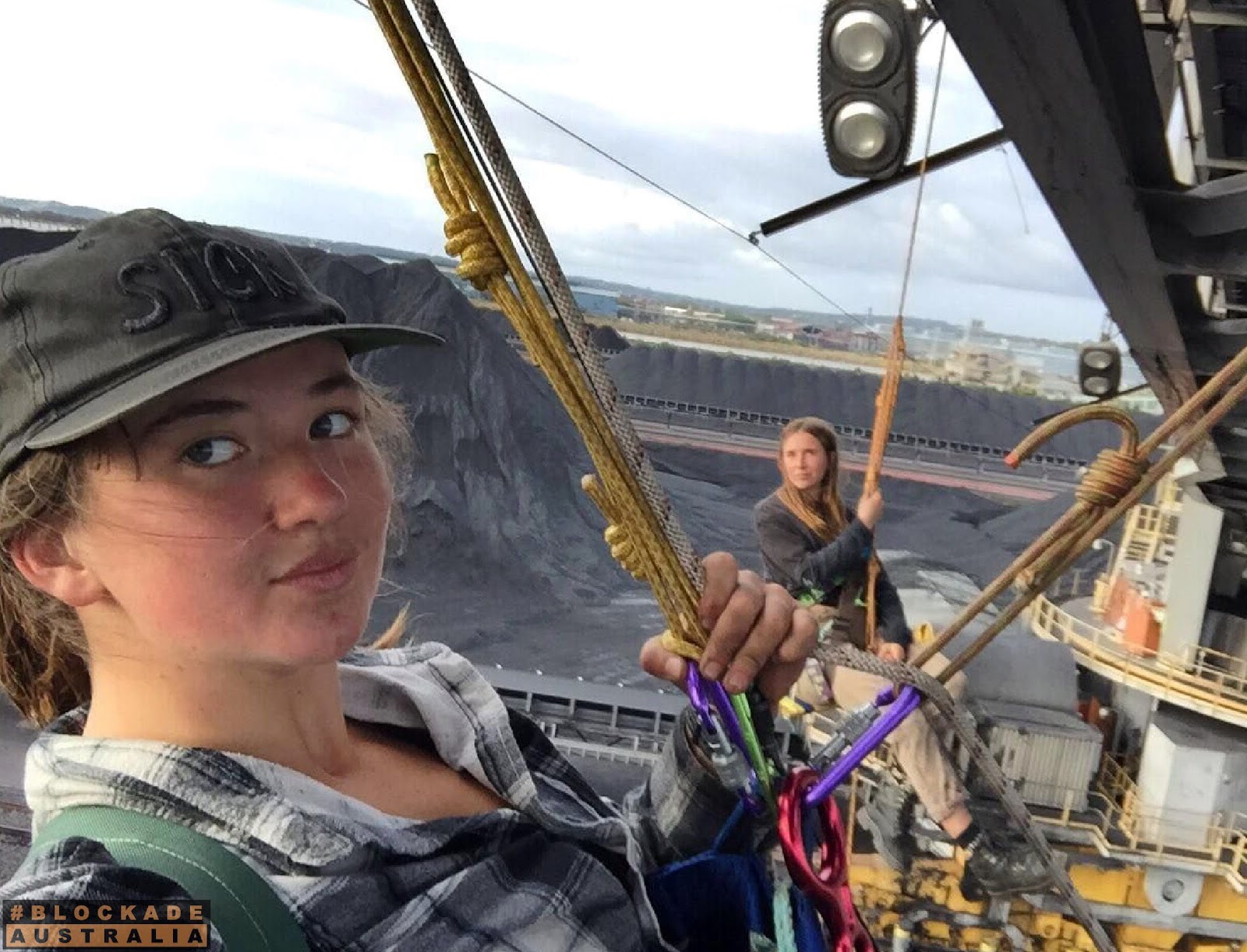
Activists abseil from coal handling machinery on the tenth consecutive day of disruption.
Just over a year ago, rebels from XR Brisbane joined activists from other backgrounds in a move to Sydney, where their actions could have greater reach and a bigger economic impact. The relocation became an opportunity to start fresh, and do NVDA however they liked.
They started planning a series of actions that would be more intensive, offensive, and disruptive than had come before, and more activists started to join them. While the world was watching COP26 enter its turgid second week, they were ready to launch their first wave of climate resistance.
For eleven consecutive days, Blockade Australia disrupted the Port of Newcastle, the largest coal port in the world. They blocked the trains transporting coal from the region’s open-cut mines, pressed emergency buttons, and climbed onto the port’s coal-loading equipment.

An indigenous activist blocks the port railway on the first day of disruption.
The biggest lesson from the campaign was how important it was to make the disruption sustained. For the first few days there was little interest in the actions, but by the second week the regional politicians and media were in a frenzy, and the group was famous around the world.
Despite threats of 25-year jail sentences, only one of the 28 arrested was imprisoned, and on appeal he was released on strict bail conditions three days into his one-year sentence. The rest received hefty fines of Au$1500 and community corrections orders, meaning they cannot reoffend for two years.
Unlike other recently emerged groups, prison is not a part of Blockade Australia’s strategy. But those corrections orders have not stopped them from planning a second wave of climate resistance in Sydney for June 2022.
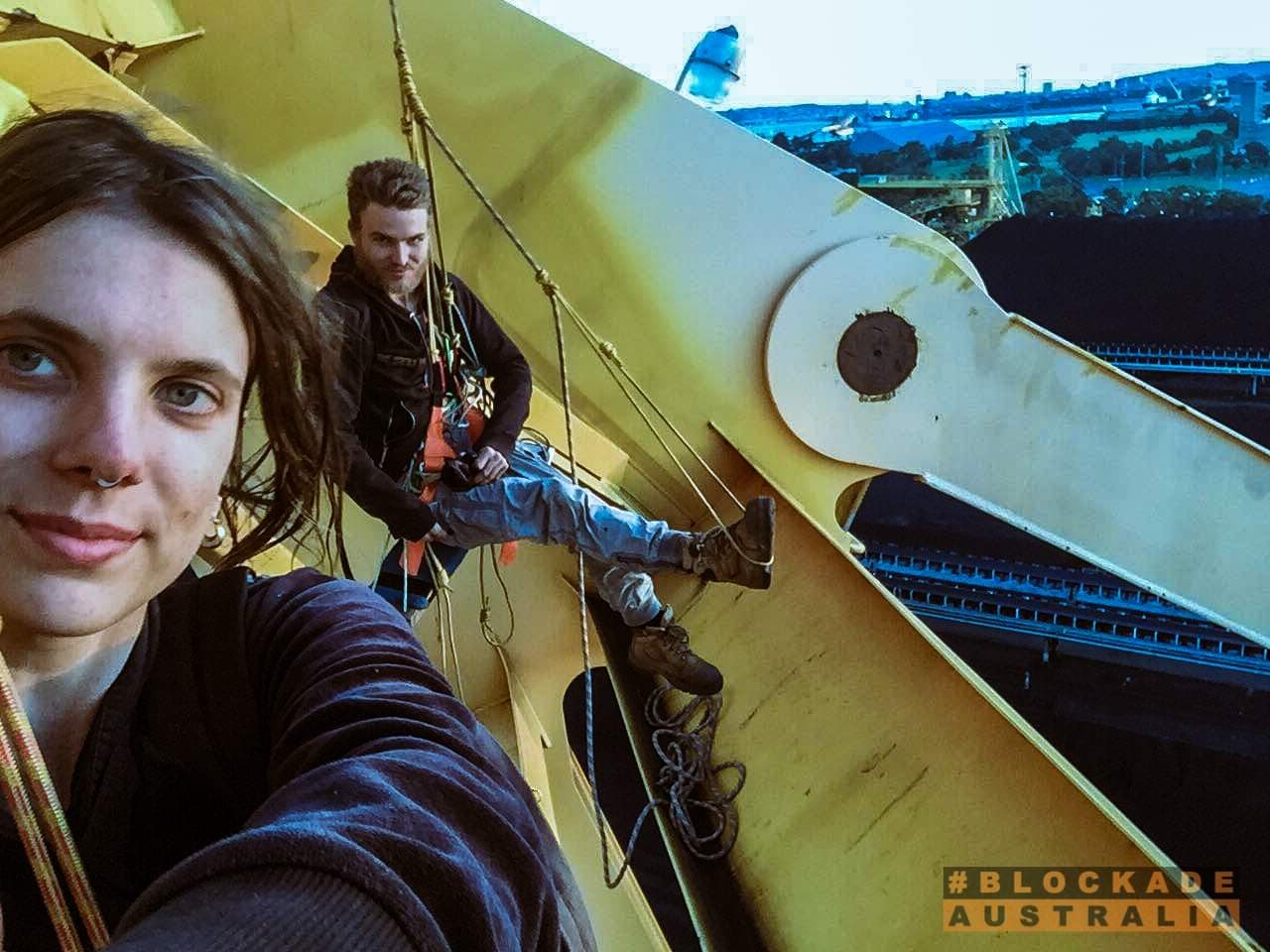
Activists hit emergency stop buttons and harness themselves to coal port machinery.
While Blockade Australia has no formal relationship with XR Australia, they are in contact with many local XR groups who support their aim to maximise disruption.
Blockade Australia recognises how vital XR was in paving the way for their own organisation. They hope XR can initiate its own sequence of sustained mobilisations some day soon.
Find out more about Blockade Australia by visiting their website.
Insulate Britain
Established Early 2021 | UK
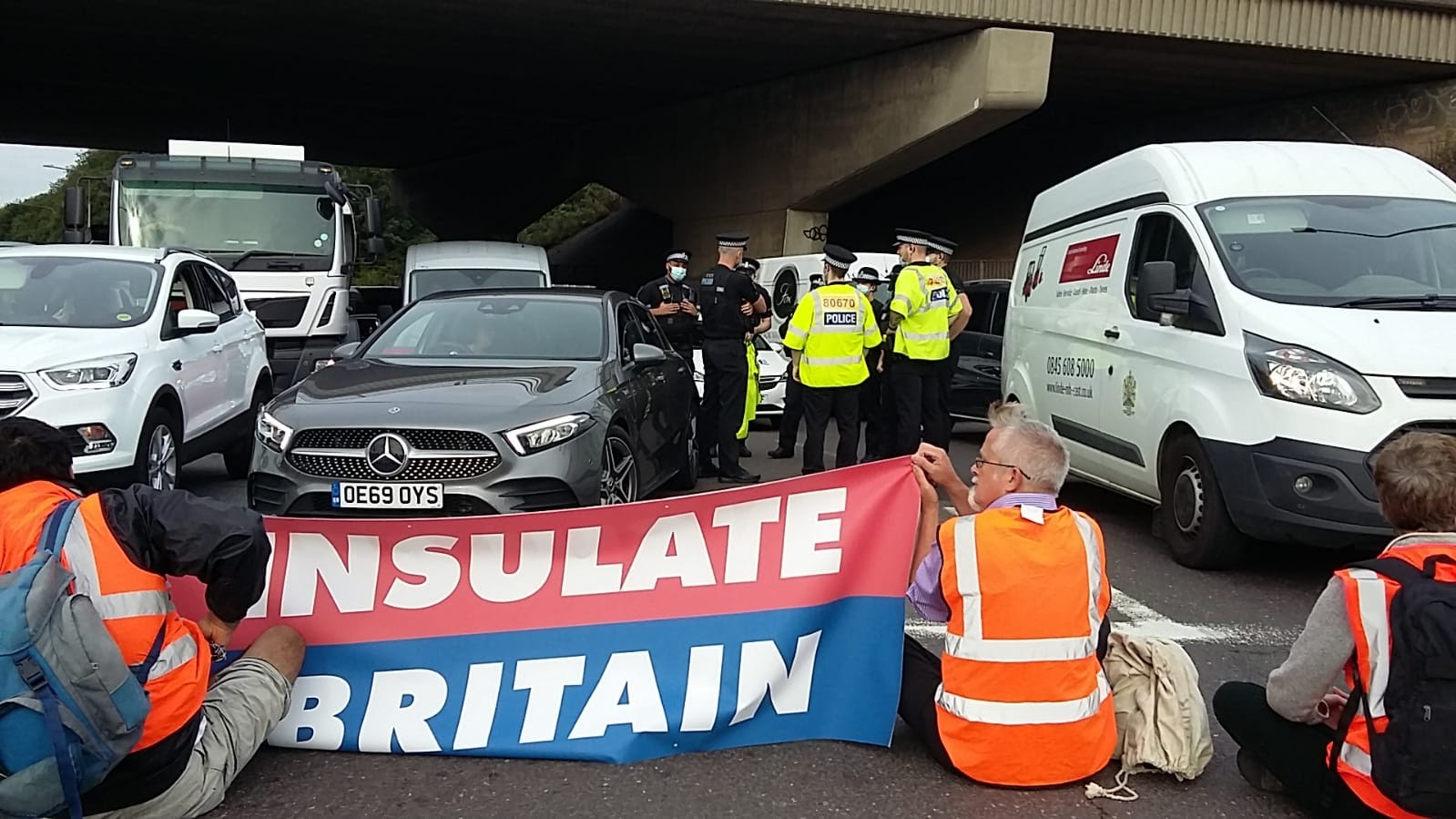
Insulate Britain’s first ever blockade of the M25. Police consider their options.
At the beginning of 2021, rebels in the UK faced a unique problem. The pandemic had left their central tactic of mass mobilisation indefinitely on hold. Yet with COP26 approaching, their government was under sustained pressure to take a lead on the climate crisis.
A group of committed rebels within XRUK wanted to capitalise on the situation. They started planning a small-scale, high-stakes campaign that would result in 120 rebels being imprisoned before COP26, exposing the government’s shallow commitment to climate action and shaming it into some kind of climbdown.
They wanted the campaign to focus on insulation. 8,500 people in England and Wales die each year because they can’t afford to heat their homes, and insulation is one of the most cost effective ways for the government to cut emissions. Insulate Britain felt it was an easy to understand and achievable demand that could broaden the appeal of eco-activism.
But it was clear the campaign would not be acceptable to many in XRUK. Insulation was seen as too boring, and the plan strayed from the 3 key demands to push for a solution, something XR had traditionally avoided. Seeking out prison terms also made many uncomfortable.
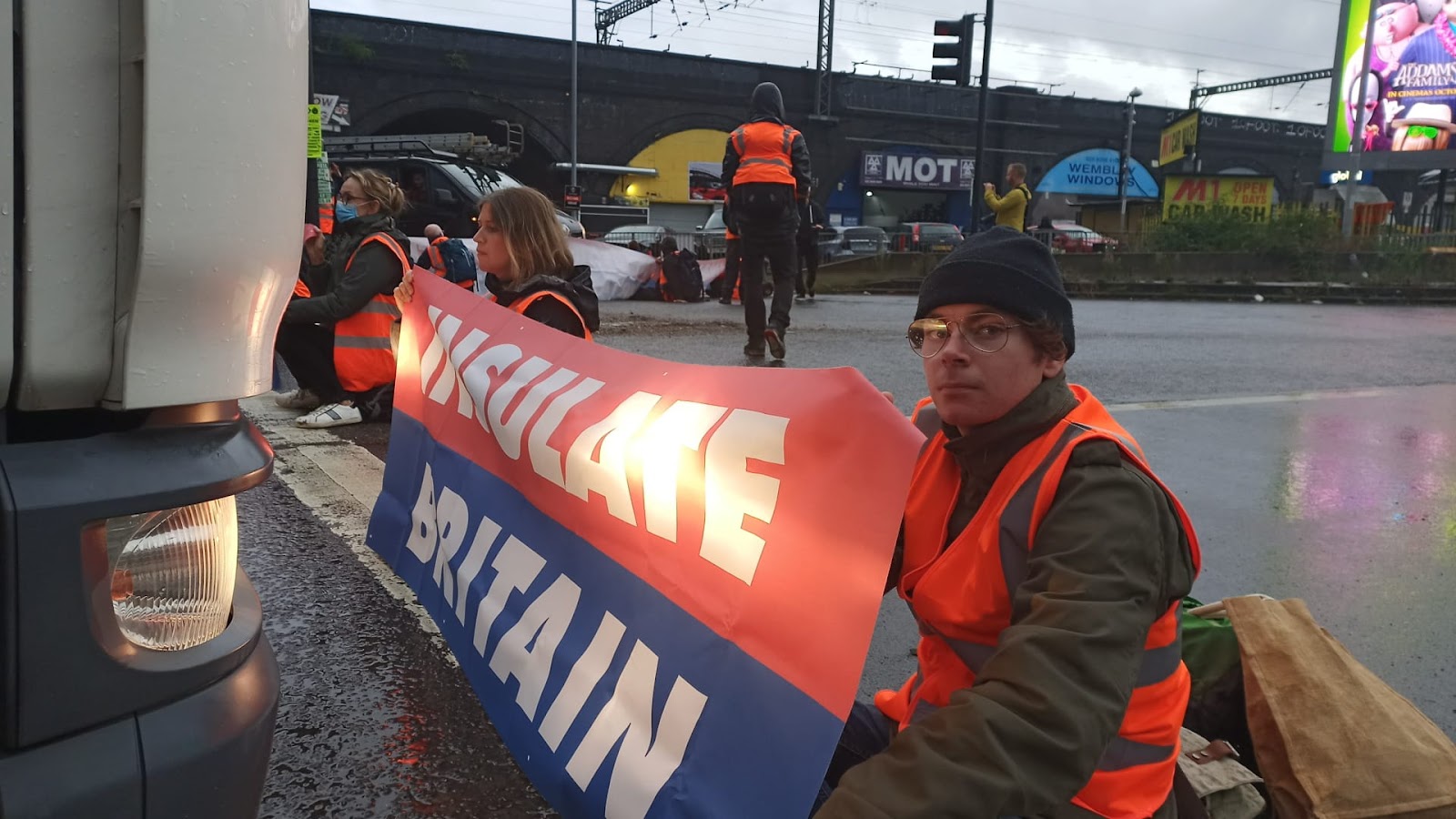
This student protester is currently in prison for his brave civil resistance.
So, despite being made almost entirely of highly active rebels, at the beginning of 2021 Insulate Britain was founded as a separate organisation. In February they started a process of leafleting and holding weekly zoom meetings to find 120 people prepared to serve prison time. By September 13th, the day of their first blockade, they had 93.
After a seven-week campaign involving 18 days of road blockades across multiple sites, they had grown to 174 people. Each one was arrested, on average, five times. The government temporarily banned any disruptive protest on any major road in the whole of England.
The key difference between an XR blockade and an Insulate Britain blockade is that Insulate Britain targets motorways and everyone, without exception, is able to risk arrest. The campaign focused in particular on the M25, a major motorway that circles London. As well as being a critical piece of infrastructure, it was so large that police could never shield it from sustained disruption.
The blockades had a huge media impact, with the majority of the coverage (not all) hysterically negative. The press focused on the rage of the trapped drivers, and spread disinformation about the group blocking ambulances, which in turn increased the rage of trapped drivers.
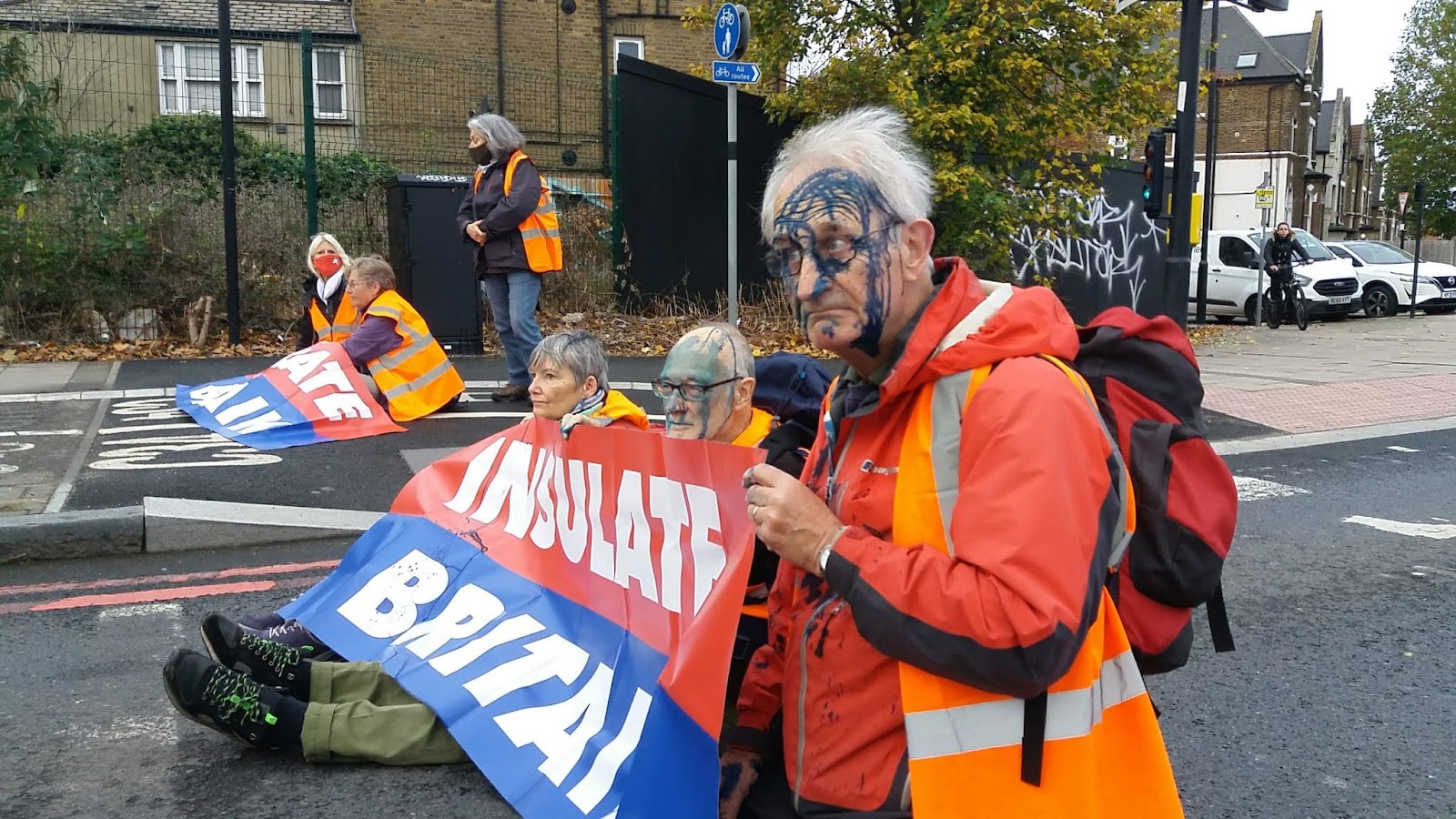
These protestors had ink thrown at them by an angry driver. Each activist underwent eight hours of training to prepare them for the aggression they would face.
The truth is that Insulate Britain always had a ‘blue-lights policy,’ meaning emergency vehicles would be allowed through a blockade. One lane always had protestors who were unglued to the tarmac to ensure they could make way.
In November, nine protestors were imprisoned for between three to six months. A few days later, in a brave display of solidarity with those imprisoned, 130 rebels were arrested blockading a London junction in contravention of the government ban. 19 more Insulate Britain supporters face up to two years in prison and unlimited fines in February.
Groups in Europe and North America have adopted Insulate Britain’s tactics, and while no formal coalition exists, activists are sharing knowledge and giving each other support.
As well as preparing more blockades for the spring, Insulate Britain is also seeding a brand new campaign that they will be ready to talk about soon. The key question guiding their plans: what is a proportionate response to the crisis we face?
Find out more about Insulate Britain by visiting their website.
Last Generation - Citizen Assemblies Now!
Established Oct 2021 | Italy
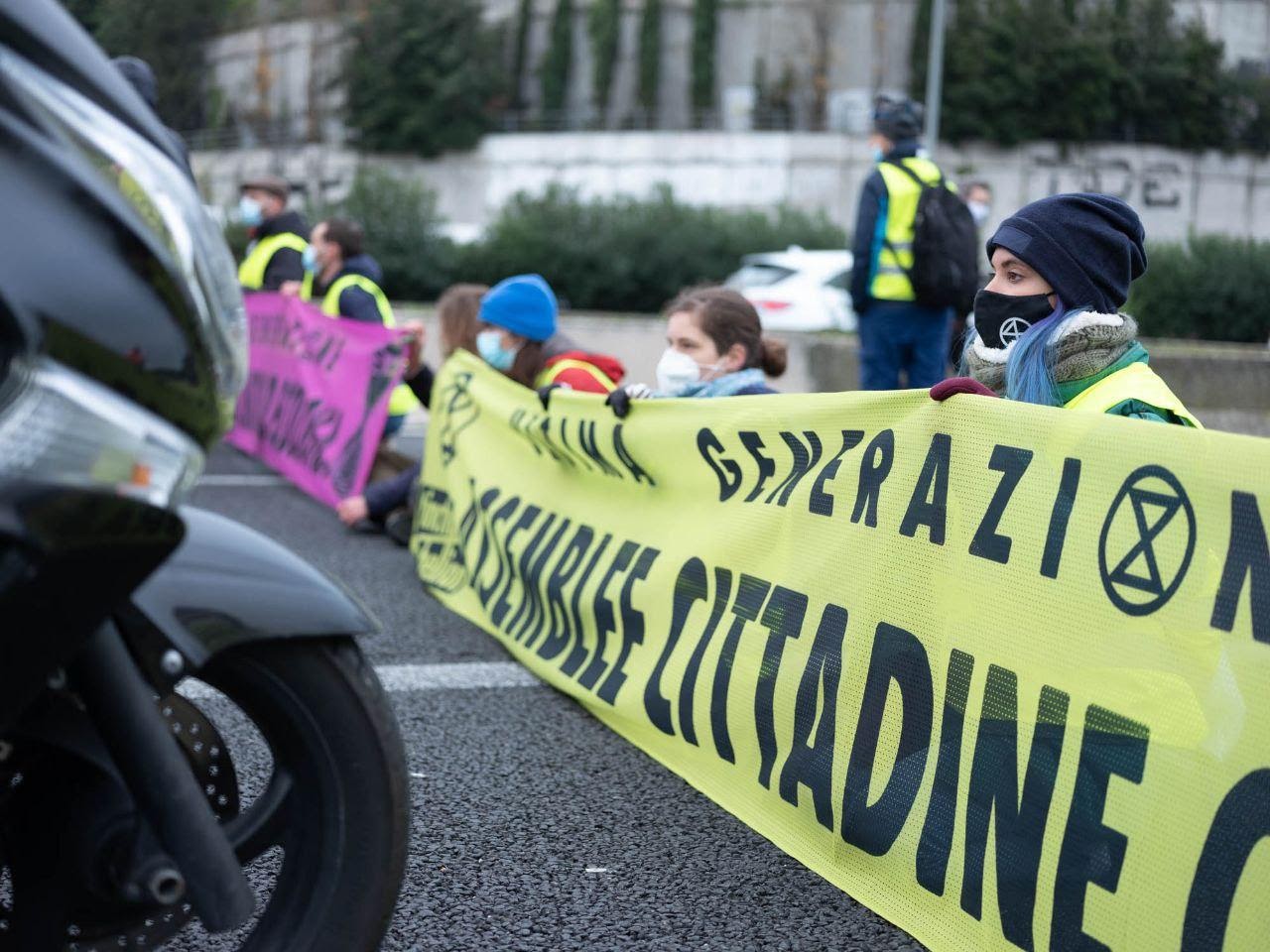
Last Generation is an XR campaign and so uses XR banners and symbols.
Last Generation is one of the new groups who have adopted the tactics of Insulate Britain. But unlike Insulate Britain, Last Generation is a campaign within XR Italy, rather than a separate organisation. Supporters still use the XR name and symbol.
This is partly because the campaign specifically targets XR’s third demand for Citizens’ Assemblies. Which raises the question: why start a new campaign at all? The six-strong rebel affinity group who first presented the idea to XR Italy felt the whole climate activist movement wasn’t going far enough, fast enough.
Inspired by the Indian farmers who occupied their capital for over a year to reject privatisation, terrified by the increasingly dire warnings of climate scientists, and frustrated by slow decision-making of the main XR organism, the rebels pitched a satellite campaign that could launch and test new forms of direct action more quickly.
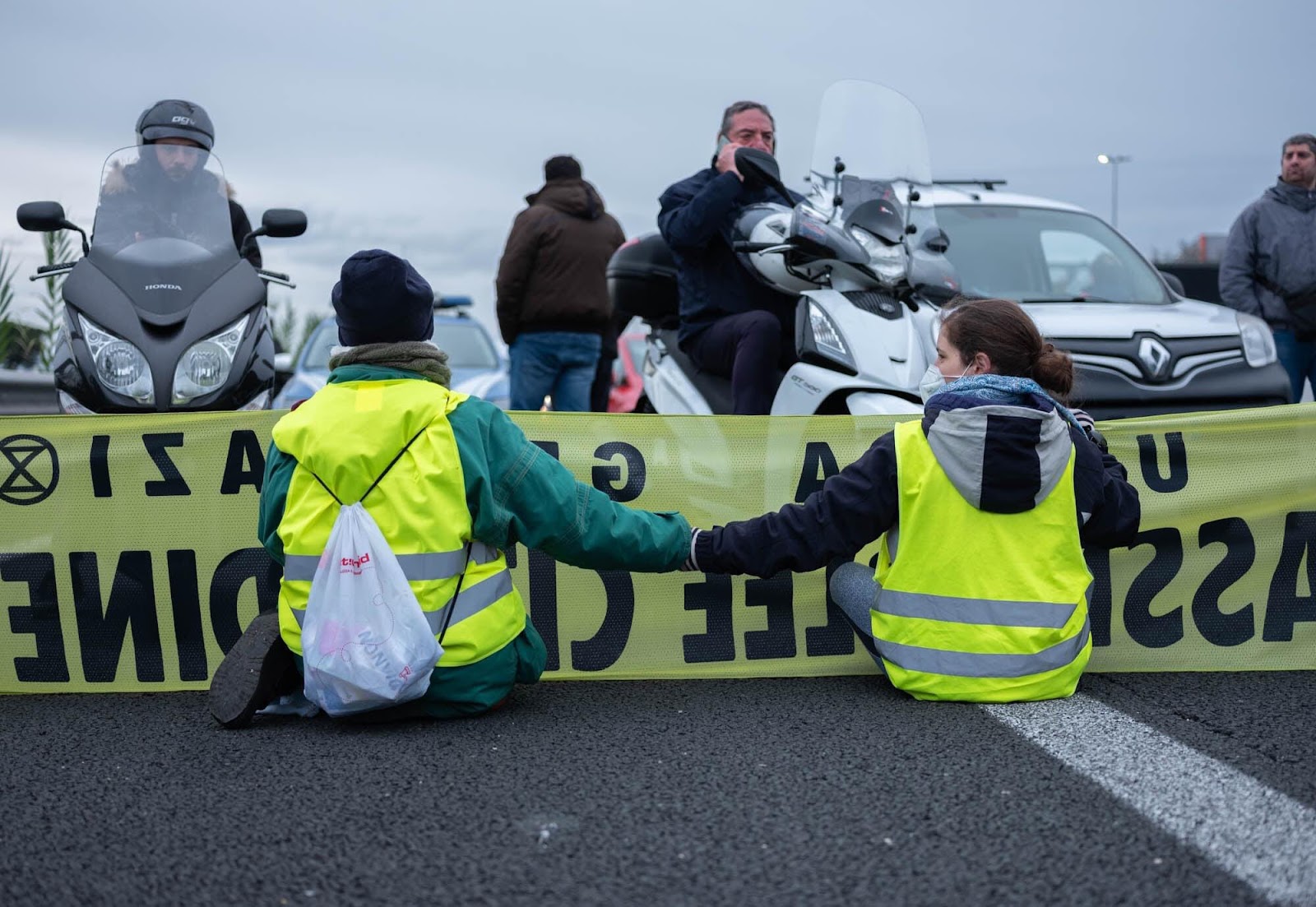
Italy was hit by record temperatures and major crop failures last year. Last Generation fears much of the country could become desert within 20-40 years.
By December, an eleven-strong team was ready to launch their first wave of actions, blockading motorways in Rome nine times over eleven days. They were spat at and kicked by drivers, arrested a grand total of 74 times, and spent many hours being processed in police jails. Most now have injunctions banning them from entering Rome for one year. If they do, they could face up to two years in prison.
Nevertheless, they will be back on the Roman ring roads come February, and also have plans for the spring. Like Blockade Australia, the big lesson for Last Generation was that the regularity of protest was just as impactful as the tactics employed.
Last Generation wants XR to heed this lesson and change its methodology. “Waiting six months for each mass mobilisation is not enough against an organised state. We have to get serious,” says one coordinator.
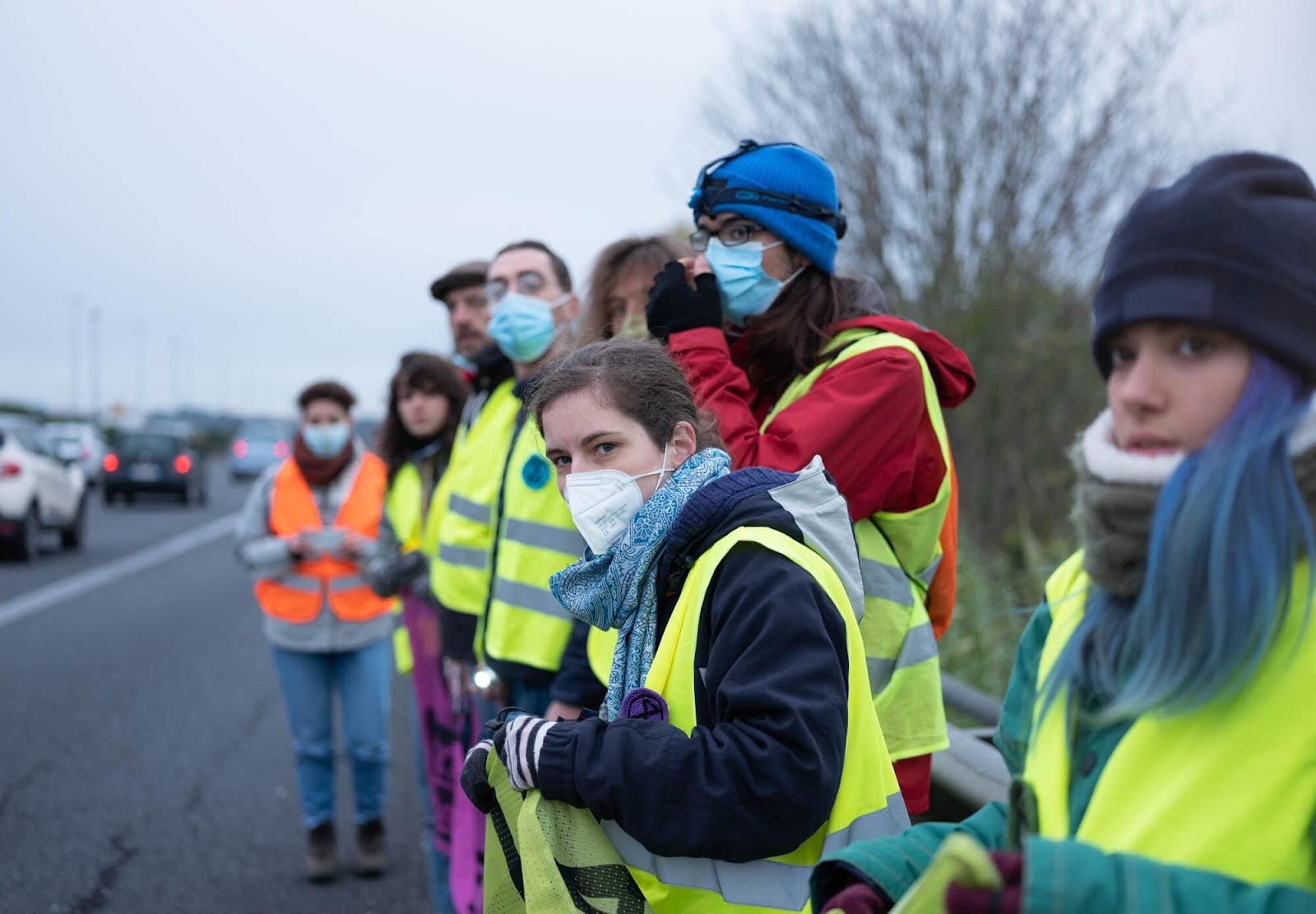
Last Generation rebels prepare to unveil their campaign to the world.
They cite the non-violent campaigns of the American civil rights movement; The Children’s Crusade where marching kids were bitten by police dogs; The Freedom Riders who repeatedly risked their lives to take part in actions.
“As a movement we are kilometres from that right now. We have a choice: to go on with protest as usual and sacrifice nothing, or to suffer and bring about change. The big question is not whether what we’re doing is good or bad. It’s whether it’s working.”
Find out more about Last Generation by visiting their website.
Shell Must Fall
Established 2019 | The Netherlands
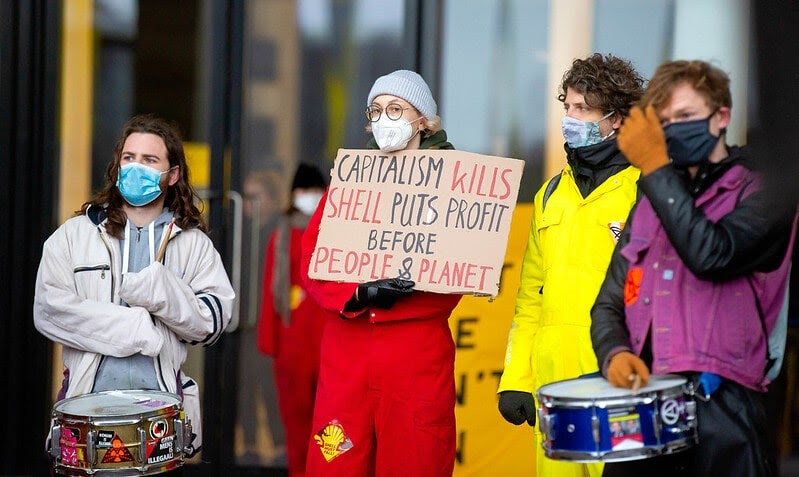
December 2021: As shareholders voted on whether Shell should move to the UK, rebels and other activists joined Code Rood to protest outside their meeting in Rotterdam.
The story of Shell Must Fall starts in the ancient times of 2017, when Dutch climate activists were coming together to book buses to Germany so they could join the coal mine occupations of Ende Gelände.
Some of the activists saw this grouping had potential and founded Code Rood (Code Red) to continue mobilisations within The Netherlands. First, they occupied a major coal harbour in Amsterdam. A year later they launched a blockade in Groningen, home to the biggest natural gas field in Europe.
The organisers realised that launching separate actions around the country was diluting their effectiveness. They needed to pick one target and stick to it. In 2019, the Shell Must Fall campaign took shape, the name inspired by a Climate Liberation Bloc chant, and Rhodes Must Fall, the anti-imperialist student movement in South Africa. Various climate groups signalled their support, including XR.
The key aim of the campaign was to reject the idea that multinational corporations like Shell could be made to ‘go green’ or respect human rights. They extract fossil fuels and put shareholder value above all else. That is their function. So they must be dismantled.
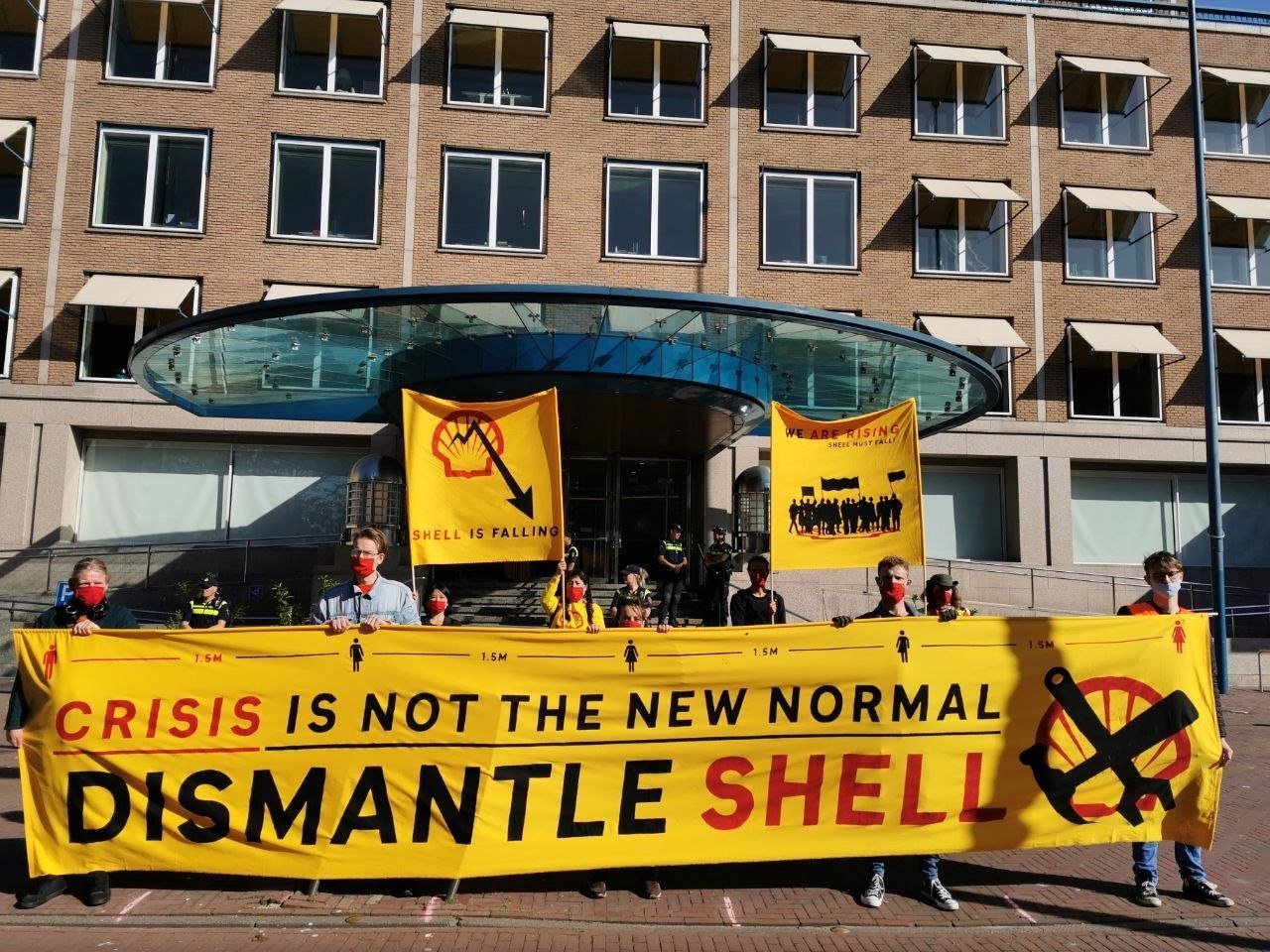
The pandemic kept protests small, but activists still stood outside Shell’s HQ during their 2020 online AGM. Solidarity actions, many including rebels, happened around the world.
Shell Must Fall launched in spectacular fashion with an invasion of the 2019 Shell shareholder meeting. To much anger, an activist declared it would be the last Annual General Meeting (AGM) the corporation would hold. Time was up for businesses like Shell.
But then the pandemic hit, large public gatherings were made illegal, and Shell’s next AGM was held online. Then, Shell announced it would move its headquarters to London (for reasons of tax avoidance). It’s still not clear if this year’s meeting will be online or off.
Shell Must Fall wants to ensure that UK activists adopt their philosophy on Shell, and give the corporation a “warm” welcome when it moves there later this year. They are in discussions with XRUK and other groups, and have just finished their own AGM of sorts: a series of online webinars for Shell Must Fall’s 100+ supporters to discuss strategy.
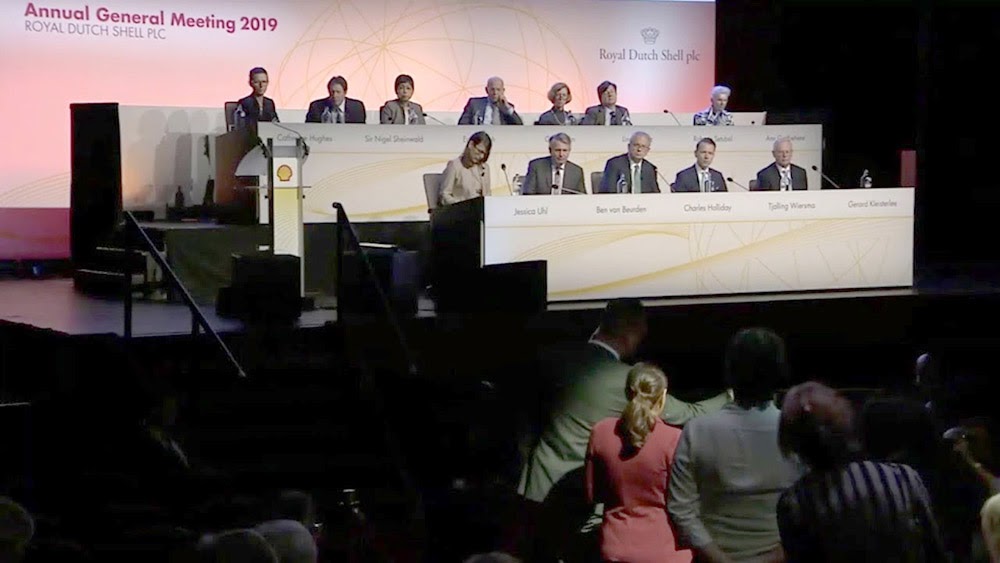
Shell Must Fall gatecrash Shell’s 2019 AGM and really change the atmosphere.
Meanwhile, similar groups and campaigns set on dismantling fossil fuel corporations have mushroomed across the globe. Total Must Fall, Shale Must Fall, BP Must Fall, Ineos Will Fall; these are just some of the groups that have emerged since Shell Must Fall’s debut. Each group is wholly independent and there are no rules nor copyrights to infringe.
Academics like Andreas Malm are now arguing that the sabotage of fossil fuel infrastructure is morally just. But a Shell Must Fall coordinator is not wholly convinced; “I believe Andreas has made mistakes in his analysis, and the tactics he espouses could trigger a large and damaging backlash to our movement. But with 1.5C past us and even 2C slipping out of reach, it’s a debate we do need to have.”
Find out more about Shell Must Fall by visiting their website.
This Full Report was brought to you by the XR Global Newsletter team. An abridged version was featured in XR Global Newsletter #60.